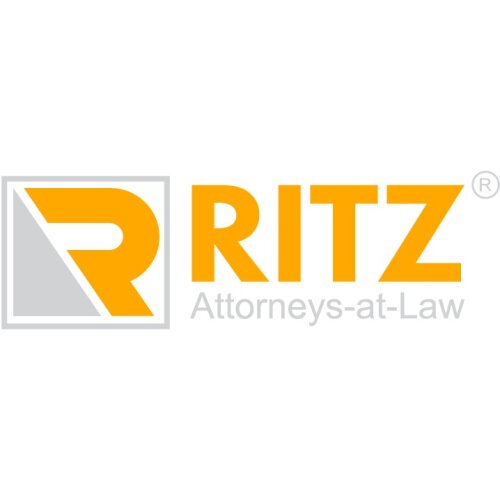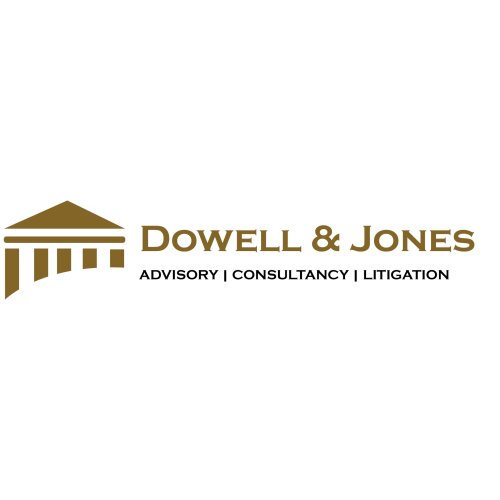Best Banking & Finance Lawyers in Malawi
Share your needs with us, get contacted by law firms.
Free. Takes 2 min.
Or refine your search by selecting a city:
List of the best lawyers in Malawi
About Banking & Finance Law in Malawi
Banking and Finance Law in Malawi is a critical aspect of the nation’s legal system, as it governs the functioning of financial institutions and the financial market. The Reserve Bank of Malawi (RBM) plays a central role in regulating the banking sector and financial activities. The field encompasses matters related to banking, investment, credit, insurance, and securities. Financial institutions must comply with various regulatory requirements to operate within Malawi, ensuring financial stability, consumer protection, and the prevention of illicit financial activities.
Why You May Need a Lawyer
There are several situations in which individuals and businesses may require legal assistance in Banking & Finance matters:
- Disputes with banks or other financial institutions
- Reviewing and negotiating loan agreements or credit terms
- Ensuring compliance with financial regulations
- Handling insolvency or bankruptcy issues
- Protecting consumer rights related to financial products
- Structuring corporate finance and investment deals
- Advising on anti-money laundering (AML) compliance
Local Laws Overview
Malawi’s legal framework for Banking & Finance is designed to maintain the integrity and stability of the financial system. Some of the key laws and regulations include:
- The Banking Act, which sets out the licensing and regulatory framework for banks and other financial institutions.
- The Financial Services Act, which provides comprehensive regulation of financial services and institutions, especially non-bank financial institutions.
- The Reserve Bank Act, establishing the role and authority of the Reserve Bank of Malawi in regulating the financial sector.
- The Consumer Protection Act, which includes provisions for the protection of consumers of banking and financial services.
- Various guidelines issued by the Reserve Bank relating to prudential standards, AML, and corporate governance.
Frequently Asked Questions
What is the role of the Reserve Bank of Malawi?
The Reserve Bank of Malawi is the central bank responsible for regulating and supervising the banking and financial system to ensure stability and consumer protection.
How are banks regulated in Malawi?
Banks in Malawi are primarily regulated under the Banking Act and the Financial Services Act, with oversight by the Reserve Bank of Malawi.
How can I resolve a dispute with my bank?
Begin by reviewing your contract and seeking to negotiate with the bank. If this fails, consider legal advice or mediation services. The Financial Services Ombudsman may also assist.
Is there consumer protection in banking?
Yes, the Consumer Protection Act provides for the protection of consumers of banking and financial services in Malawi.
What is AML compliance?
Anti-money laundering (AML) compliance involves financial institutions adopting measures to prevent, detect, and report money laundering activities.
When should I consult a lawyer for a loan agreement?
Before signing a loan agreement, consult a lawyer to ensure terms are clear and do not contain unfavorable or onerous conditions.
How is insolvency handled in Malawi?
Insolvency matters are governed by the Insolvency Act, which outlines the processes for company and individual insolvency proceedings.
What are prudential standards?
Prudential standards are regulations aimed at ensuring that financial institutions operate safely and soundly, maintaining sufficient capital and liquidity.
How can businesses ensure compliance with financial regulations?
Businesses should engage compliance officers or legal advisors to stay updated on regulatory changes and ensure internal policies meet legal requirements.
Are there investment protection measures in Malawi?
Yes, investment activities are protected under laws such as the Investments and Exports Promotion Act, ensuring a conducive environment for investors.
Additional Resources
For further assistance or inquiries, consider contacting the following resources:
- Reserve Bank of Malawi: Primary regulator of the financial sector.
- Financial Services Ombudsman: Addresses disputes between consumers and financial institutions.
- Malawi Law Society: Provides listings and resources for legal practitioners in Malawi.
- Consumer Association of Malawi: Offers consumer rights advocacy and support.
Next Steps
If you need legal assistance in Banking & Finance, consider the following steps:
- Identify the specific issue or question you need help with.
- Consult the Reserve Bank of Malawi for regulatory inquiries.
- Seek recommendations for qualified Banking & Finance lawyers through the Malawi Law Society or trusted referrals.
- Prepare relevant documents and information before meeting with a legal professional.
- Discuss your case with a lawyer to understand your options and potential outcomes.
Lawzana helps you find the best lawyers and law firms in Malawi through a curated and pre-screened list of qualified legal professionals. Our platform offers rankings and detailed profiles of attorneys and law firms, allowing you to compare based on practice areas, including Banking & Finance, experience, and client feedback.
Each profile includes a description of the firm's areas of practice, client reviews, team members and partners, year of establishment, spoken languages, office locations, contact information, social media presence, and any published articles or resources. Most firms on our platform speak English and are experienced in both local and international legal matters.
Get a quote from top-rated law firms in Malawi — quickly, securely, and without unnecessary hassle.
Disclaimer:
The information provided on this page is for general informational purposes only and does not constitute legal advice. While we strive to ensure the accuracy and relevance of the content, legal information may change over time, and interpretations of the law can vary. You should always consult with a qualified legal professional for advice specific to your situation.
We disclaim all liability for actions taken or not taken based on the content of this page. If you believe any information is incorrect or outdated, please contact us, and we will review and update it where appropriate.
Browse banking & finance law firms by service in Malawi
Malawi Attorneys in related practice areas.
Browse banking & finance law firms by city in Malawi
Refine your search by selecting a city.
















